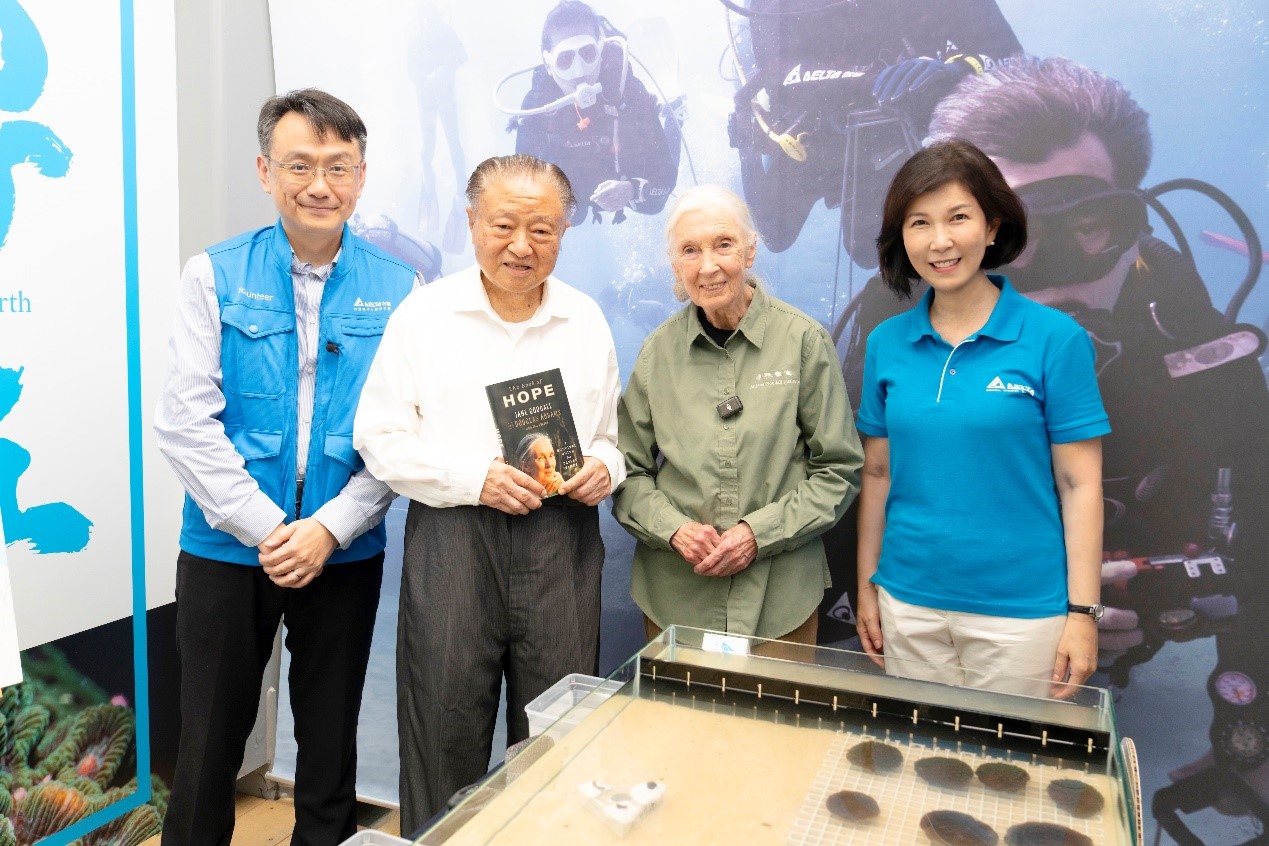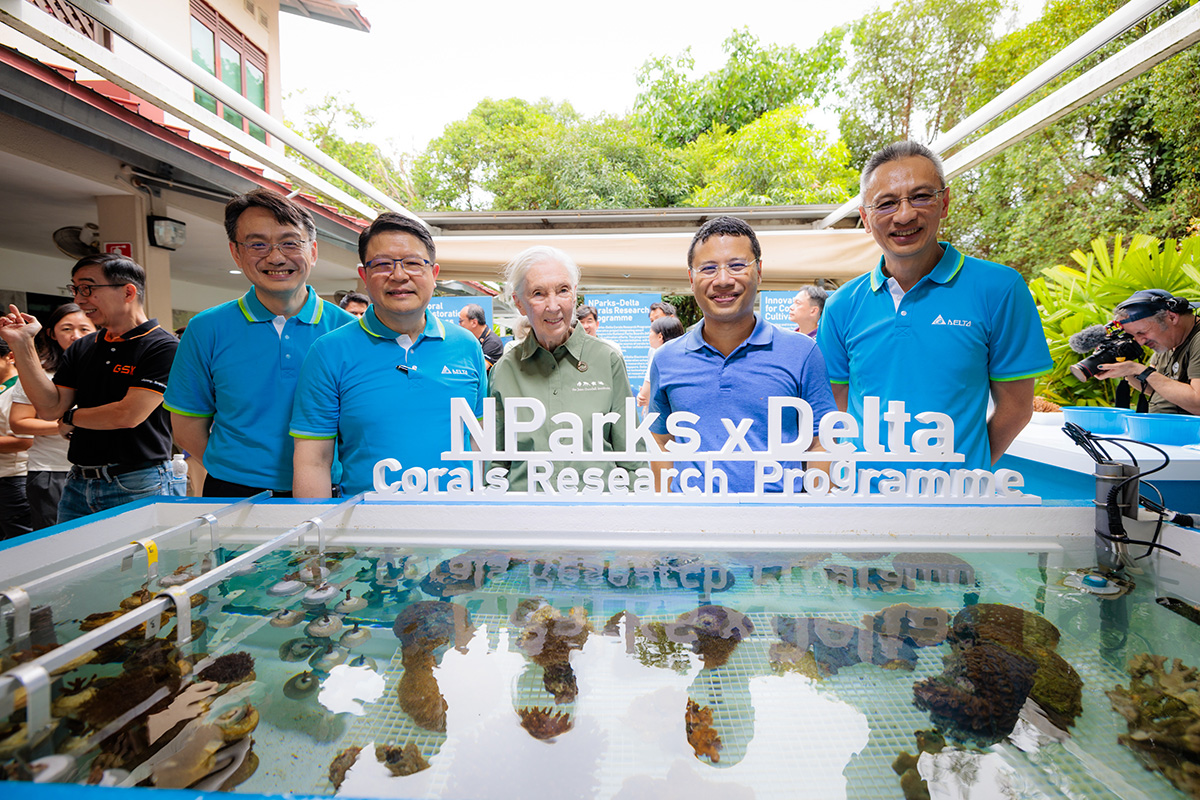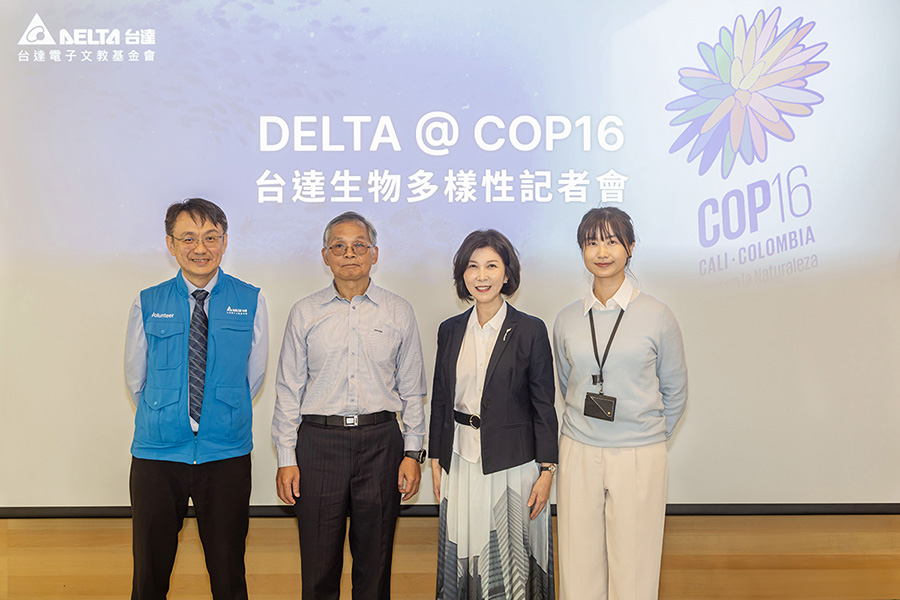The Delta Foundation continues to deepen its coral restoration efforts and promotes ocean conservation through various initiatives. The foundation hosted a charity premiere of the 8K ocean ecology documentary “Shipwrecks Taiwan” at the Taipei Performing Arts Center's spherical auditorium. Directed by Tim Lee, a three-time Golden Bell Award-winning director, the film was presented using Delta's 8K projection technology on an 800-inch screen, delivering an unprecedented visual experience to the audience and conveying the importance of ocean conservation.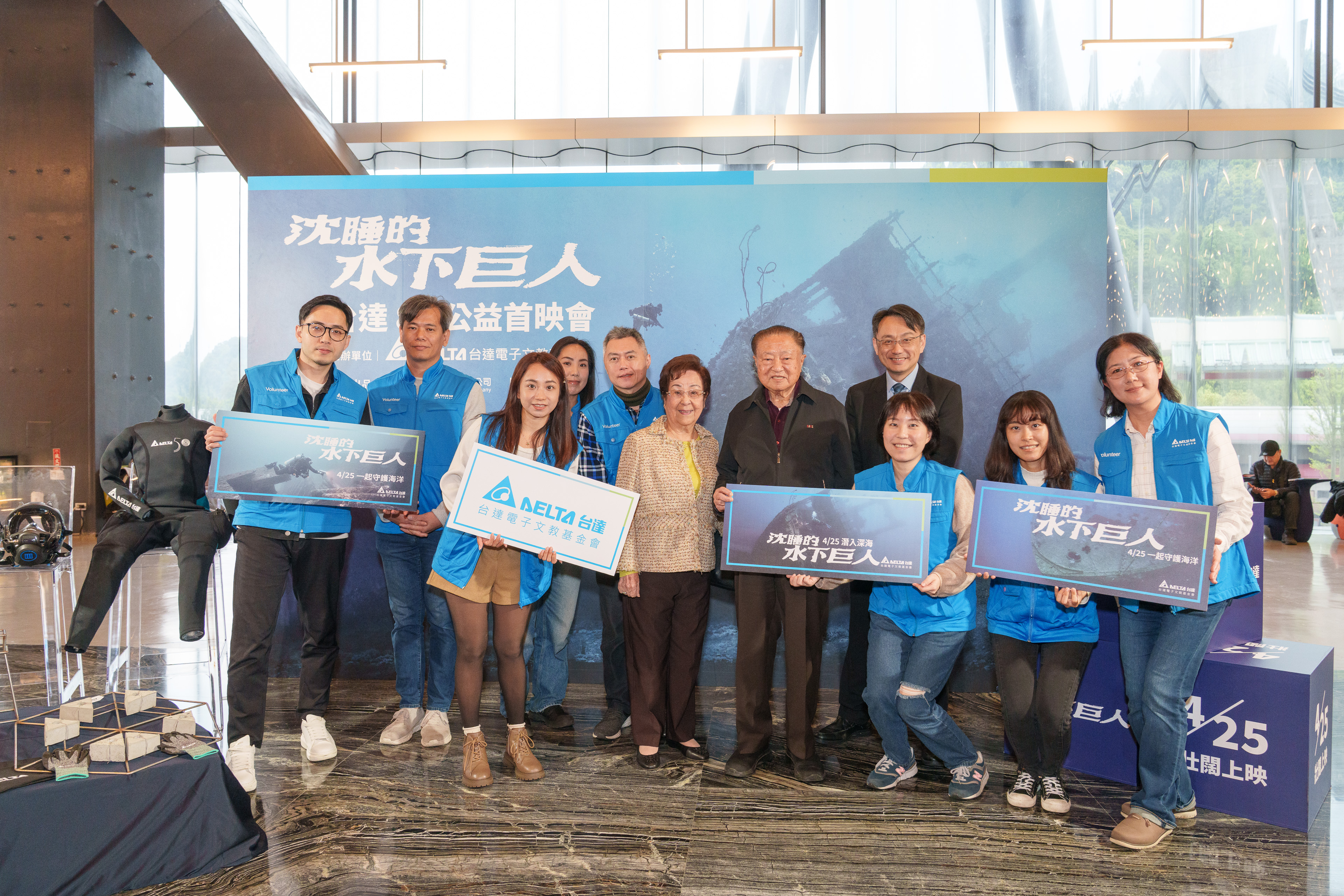 Mr. Bruce Cheng, Founder of Delta Electronics and Chairman of the Delta Foundation, and Mrs. Cheng (center), joined Mr. Wim Chang, CEO of the Delta Foundation (back row, first from right), and Delta’s marine conservation volunteers for a group photo at the 8K charity premiere of Shipwrecks Taiwan.
Mr. Bruce Cheng, Founder of Delta Electronics and Chairman of the Delta Foundation, and Mrs. Cheng (center), joined Mr. Wim Chang, CEO of the Delta Foundation (back row, first from right), and Delta’s marine conservation volunteers for a group photo at the 8K charity premiere of Shipwrecks Taiwan.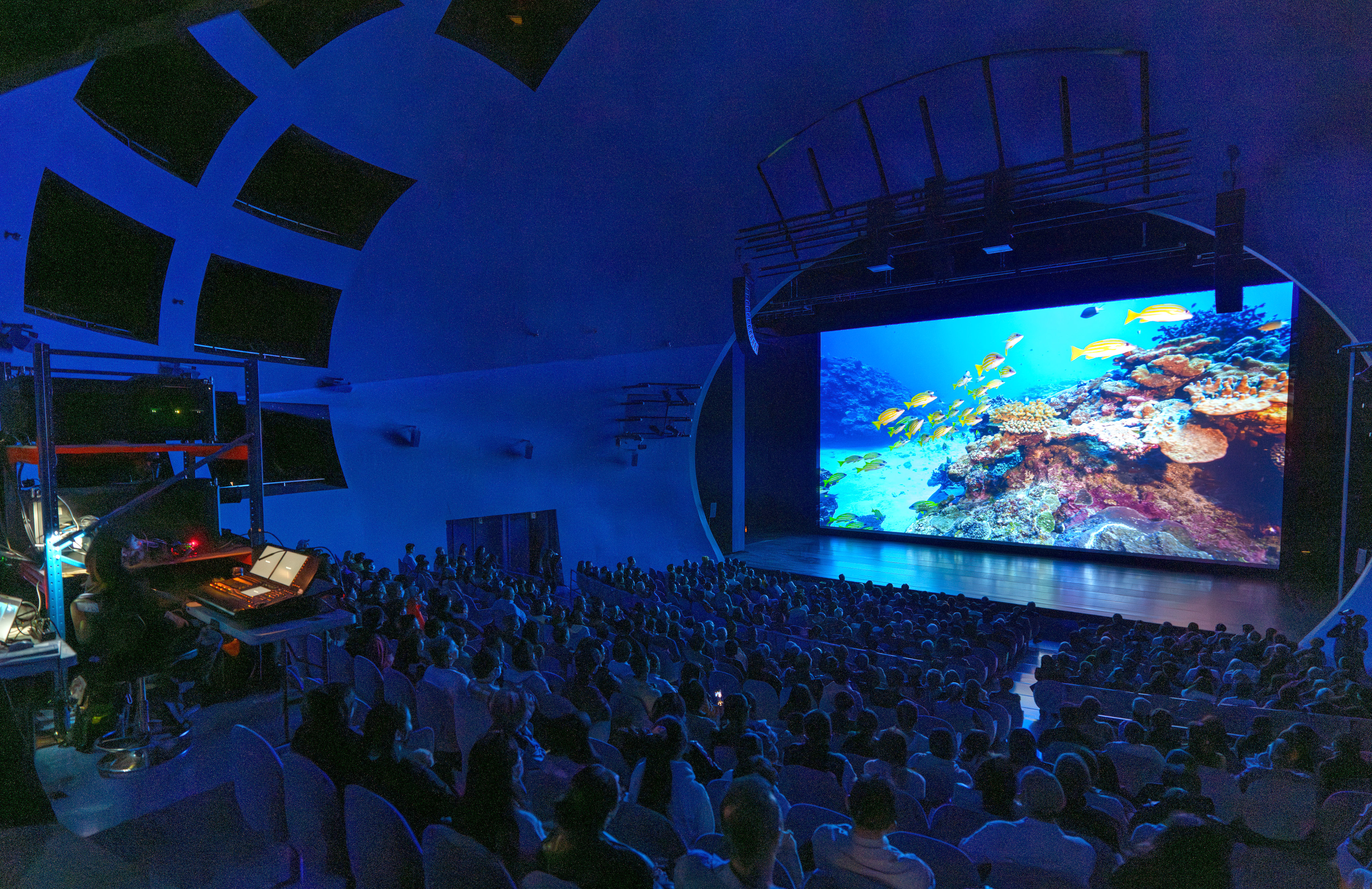 The premiere of "Shipwrecks Taiwan" featured Delta’s cutting-edge 8K projection technology, presented the film on an impressive 800-inch screen. Through stunning visuals, the audience was taken 50 meters beneath the ocean’s surface to explore the hauntingly beautiful remains of eight real-life shipwrecks.
The premiere of "Shipwrecks Taiwan" featured Delta’s cutting-edge 8K projection technology, presented the film on an impressive 800-inch screen. Through stunning visuals, the audience was taken 50 meters beneath the ocean’s surface to explore the hauntingly beautiful remains of eight real-life shipwrecks.
"Shipwrecks Taiwan" took over four years to complete, overcoming more than 600 diving challenges. Depths of up to fifty meters were descended to capture footage of eight shipwrecks in different marine areas of Taiwan, filmed in 8K resolution at 120 frames per second (fps). The documentary not only showcases the magnificent visuals and ecological wonders of the ocean but also reveals the ecological crises currently facing marine environments. The entire film's color grading was completed at Delta Headquarters' 8K Green Theater. Through the finest image quality, it captures the thriving marine life and unveils Taiwan's rare deep-sea world. 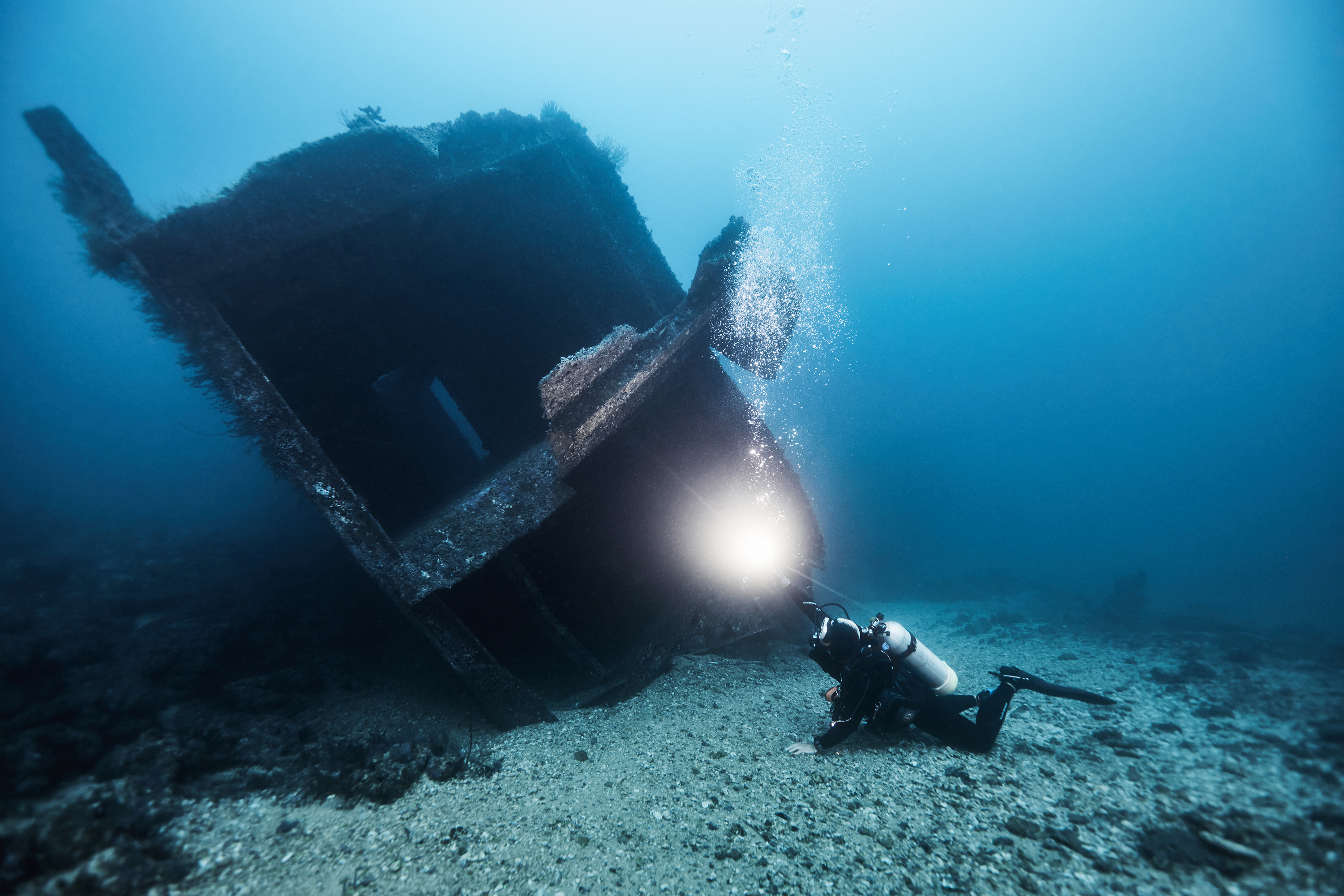 An underwater photographer capturing an image of the ROCS Chen Hai LSD-192 at Liuqiu Island, which is the largest artificial military ship reef in Taiwan; however, the fish hold is nearly devoid of fish, highlighting the crisis facing Taiwan's marine biodiversity.
An underwater photographer capturing an image of the ROCS Chen Hai LSD-192 at Liuqiu Island, which is the largest artificial military ship reef in Taiwan; however, the fish hold is nearly devoid of fish, highlighting the crisis facing Taiwan's marine biodiversity.
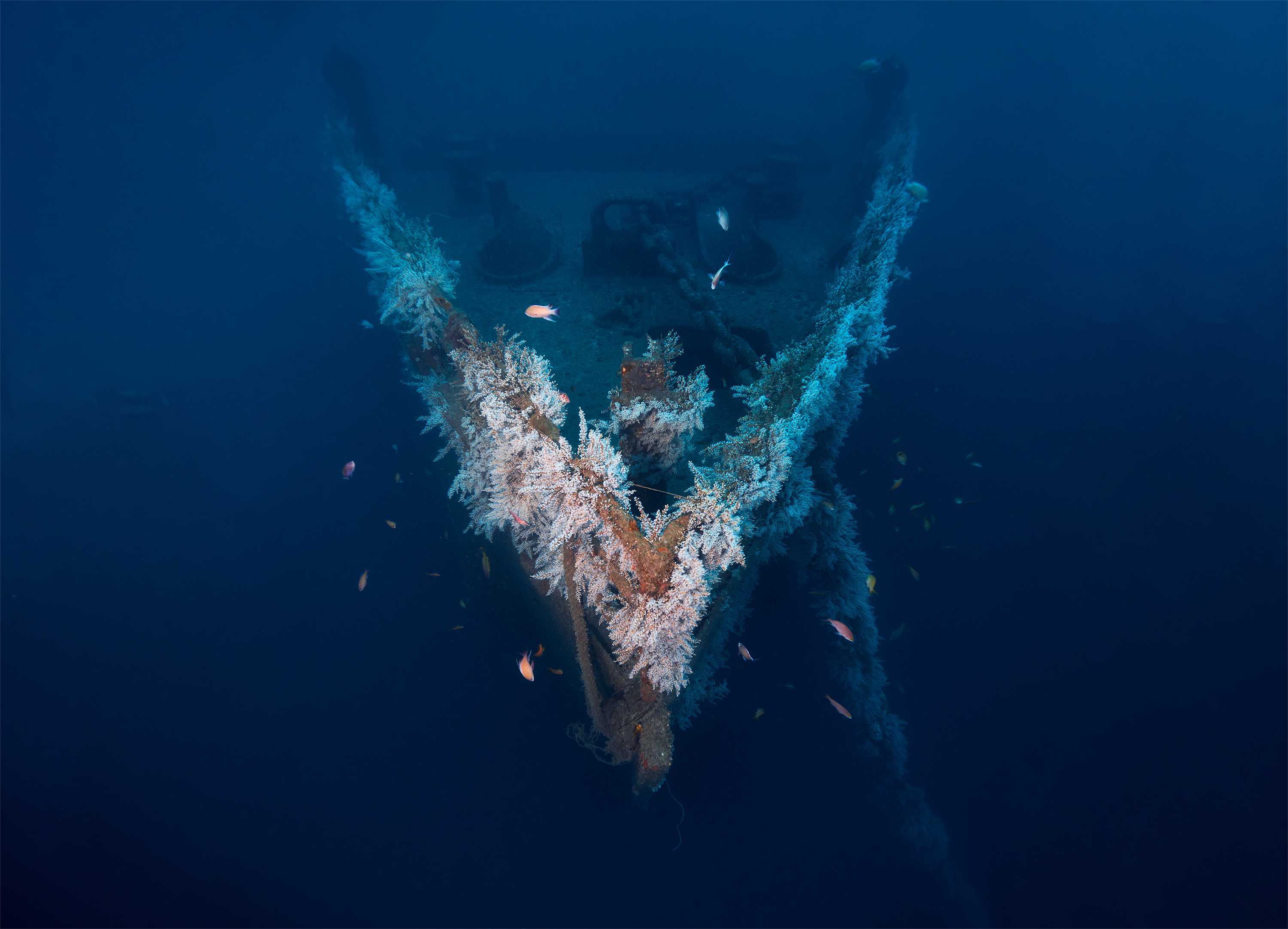 The bow of the ROCS Chung Cheng LSD-191 in Pingtung is covered with vigorously growing snowflake corals, resembling fallen white snow.
The bow of the ROCS Chung Cheng LSD-191 in Pingtung is covered with vigorously growing snowflake corals, resembling fallen white snow.
To raise public awareness of marine ecology, the Delta Foundation will host an 8K charity tour and post-screening discussion on April 11 and 18 at the National Science and Technology Museum in Kaohsiung and the National Museum of Prehistory in Taitung, respectively. Furthermore, there are plans to extend this initiative into schools, with the hope of inspiring more of the younger generation to engage in marine restoration efforts.
In addition to raising awareness through visuals, the Delta Foundation actively participates in international exchange activities. In late February, the International Union for Conservation of Nature (IUCN) workshop gathered over 20 scholars from 12 countries and 8 ecological regions to discuss risk assessments for coral reef ecosystems. As the only invited organization from Taiwan, the Delta Foundation acquired the opportunity to introduce the Restoration Project of Delta's Coral Reef Conservation to international coral experts. Arizona State University (ASU), which leads the compilation of the Red List, and the coral research-focused Coastal Oceans Research and Development in the Indian Ocean (CORDIO) also participated in the meeting, discussing newly developed research methods and writing approaches for the Red List of endangered coral with participants from various countries.
The previous Red List published by the IUCN served as a reference for countries in compiling their conservation species lists. The new edition focuses on ecosystems, carefully assessing the risks of ecosystem collapse. The Delta Foundation is set to collaborate with the IUCN on the coral Red List, assisting frontline scholars in completing a new assessment of coral reef ecosystems before the 2026 United Nations Conference of the Parties on Climate Change (COP31), thereby demonstrating Delta's commitment to biodiversity.
Through participation in global research and actions, the Delta Foundation not only deepens its own coral restoration project but also actively contributes its expertise and experience. By collaborating with international partners, it promotes coral conservation and contributes to the sustainable development of marine ecosystems, demonstrating Delta's long-term commitment to biodiversity conservation.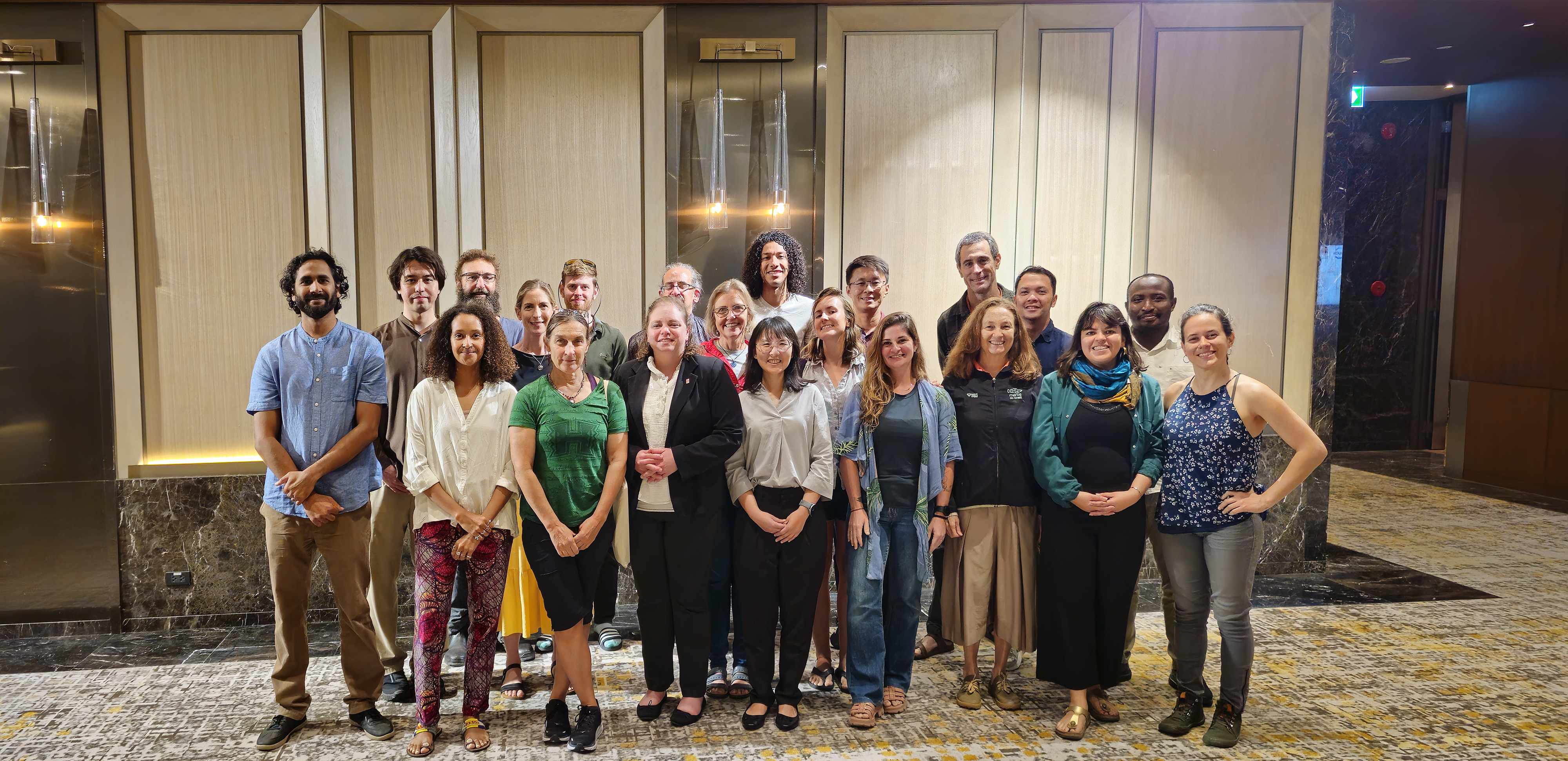 Coral experts from the Global Coral Reef Monitoring Network (GCRMN) posed for a group photo after the meeting. Lin Yen-hsi, project officer of the Delta Foundation (front row, center), represented Delta at the event.
Coral experts from the Global Coral Reef Monitoring Network (GCRMN) posed for a group photo after the meeting. Lin Yen-hsi, project officer of the Delta Foundation (front row, center), represented Delta at the event.












